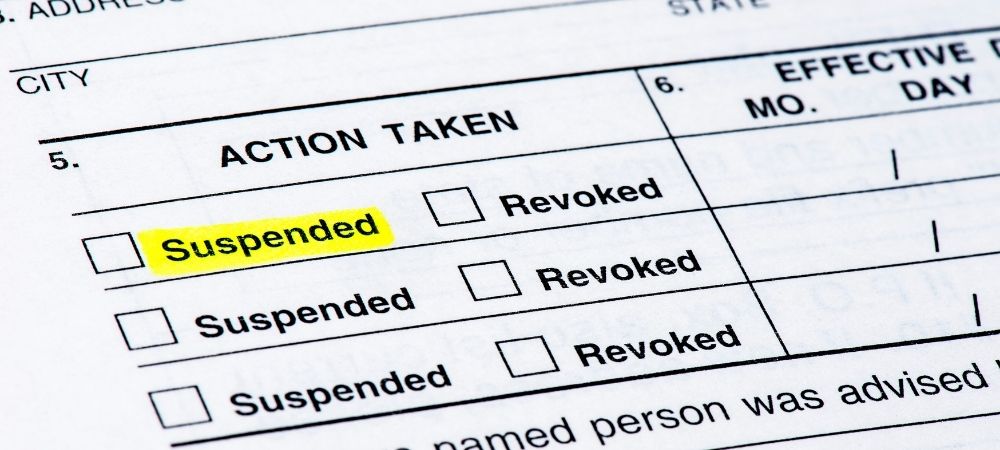
Find Out How Long Does a Speeding Ticket Stay on Your Record Here
Speeding tickets are the worst. They often bring adverse outcomes for drivers. That’s why you must avoid them at all costs. However, how long does a speeding ticket stay on your record?
Today we’ll answer this question. Not only that, but we’ll also go over the main instances in which drivers get license points. Lastly, we’ll go over the consequences license points can bring to your insurance premiums and what you should do after getting a speeding ticket.
What Are License Points ?

As you may already know, a driver’s license isn’t necessary for buying a vehicle. However, drivers should always have them if they’re the ones constantly driving the car. And, when acquiring a license, you are also getting a driving record.
This record, alias your motor vehicle report (MVR), is an account of valuable information such as your age, address, sex, and driving history.
When it comes to measuring traffic violations, the DMV in most states uses a point system known as demerit or license points. In other words, every time a driver commits certain violations, they earn points according to the action they made. These points end up in your driving record.
Think of license points as a tracking mechanism the DMV uses to monitor the number of traffic violations someone has. With this point system, they can determine whether to suspend or revoke a driver’s license. That way, they can ensure that all drivers keep good driving habits, thus reducing risks on the road.
Some of the most common moving violations done out of road rage include reckless driving, texting and driving, driving under the influence, and speeding.
Also, all of these violations often come with either 2 or 3 points. Usually, any Texas or out-of-state traffic conviction has 2 points. On the other hand, if there was a crash in the violation, expect it to be 3 points.
Nevertheless, there are specific actions some drivers might make that won’t result in points. Some of these violations include not wearing your seatbelt or traveling ten mph or less than the speed limit.
Which Are the Fines and Penalties from License Points?
Keep in mind that all tickets come with fines and penalties. Not only that but there are also additional surcharges for certain types of violations. These extra fees often come from two main factors: the number of points you have and convictions. In case you have both in your driving record, there’s a chance that you’ll have to pay separate fines for each.
When it comes to points, be mindful that once you have over 6 points, you’ll have a surcharge of $100. Additionally, for each additional point after reaching 6, you’ll need to pay $25 more.
We then have convictions.
They are charges that automatically come with certain moving violations when you’re found guilty. Additionally, conviction-based surcharges are much more expensive compared to your regular point-based fees. Some of these can even end up costing you up to $1000!
How Long Does a Speeding Ticket Stay on Your Record?
So, how long does a speeding ticket stay on your record? Just like any other traffic violation, the points coming from a speeding ticket will remain in your Texas driver record for 3 years from the date of conviction. Generally speaking, you’ll get around two and three points from speeding.
Moreover, it’s always vital to keep in mind that the amount of time these license points stay on your record varies from state to state.
Will a Traffic Ticket Affect Your Insurance Rates ?

In most cases, speeding tickets often take a toll on your insurance costs as the points are in your driving record. And, bad driving records often make your car insurance rates rise. Furthermore, speeding tickets can even have an impact on your insurance policy cost for up to three years.
Nevertheless, the rate increase will be most in the beginning. Over time, it will decrease.
While traffic tickets affect auto insurance quotes, other offenses can have more severe consequences, such as DUI infractions. For these moving violations, certain insurance companies won’t provide you any coverage.
What Should You Do After Getting a Speeding Ticket ?

So, you got a speeding ticket. Now what?
Luckily, you can prevent these license points from hurting your record by taking a Texas-approved defensive driving course. This course often goes over driving techniques, when it’s safest and most dangerous to be on the road and other driving-related topics. The length of time for this course must be six hours.
Another thing to keep in mind is that if you plead guilty to the violation, you must request permission to take this course, whether it is by mail or in person.
After the court approves your request, you only have 90 days to complete and pass it. After that, you’ll need to submit your certificate and your Texas driving record to the court. That way, they will be able to dismiss your ticket.
Unfortunately, you won’t be able to take a defensive driving course every time you get a speeding ticket. That’s why you must be aware of which are the scenarios you can’t take this course.
First, if you were driving 25 miles per hour or higher than the speed limit, then you won’t be able to take the course. The second circumstance you can’t take this examination is if you committed the violation in a construction zone. Lastly, if you already took the driving course in the past 12 months, you can’t retake it.
After submitting the documents, you’ll need to follow up in a couple of weeks. When following up, be sure to ask for a new copy of your driving record. By doing so, you can make sure that the ticket and points are no longer in it.
Get Feedback from the Experts with Us
Knowing the answer to the question “how long does a speeding ticket stay on your record” helps you become more aware of why you should avoid this type of situation. Remember that if you have any questions or concerns, we are here to help you out! We provide drivers all over Texas with professional assistance regarding auto insurance policies.
